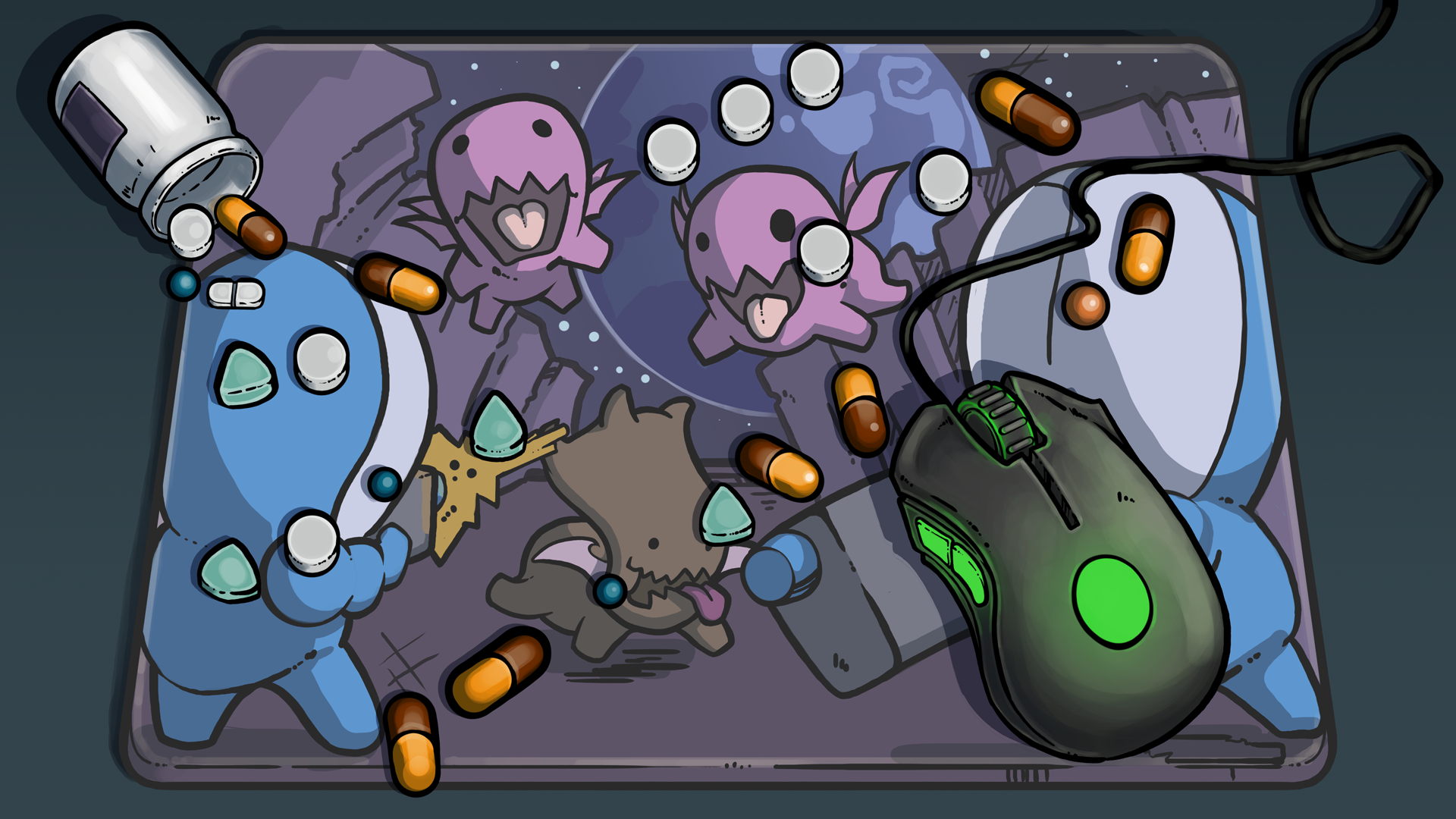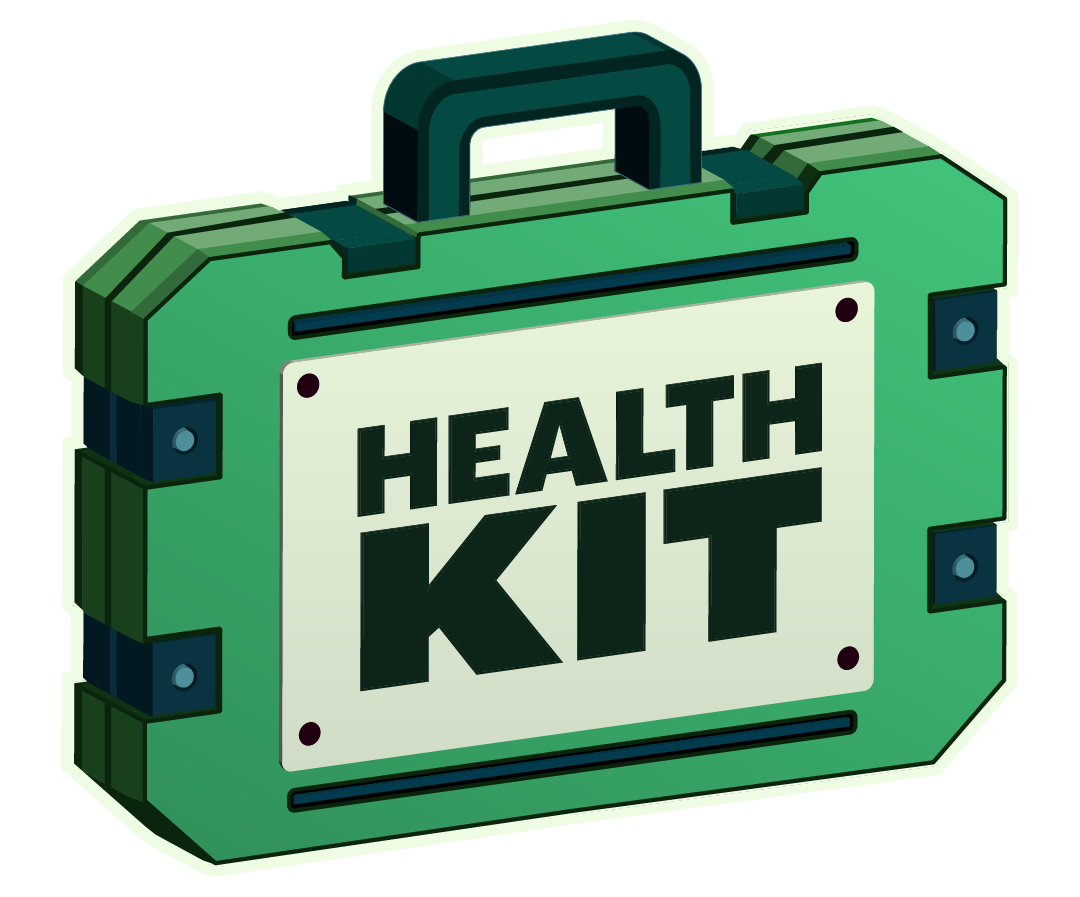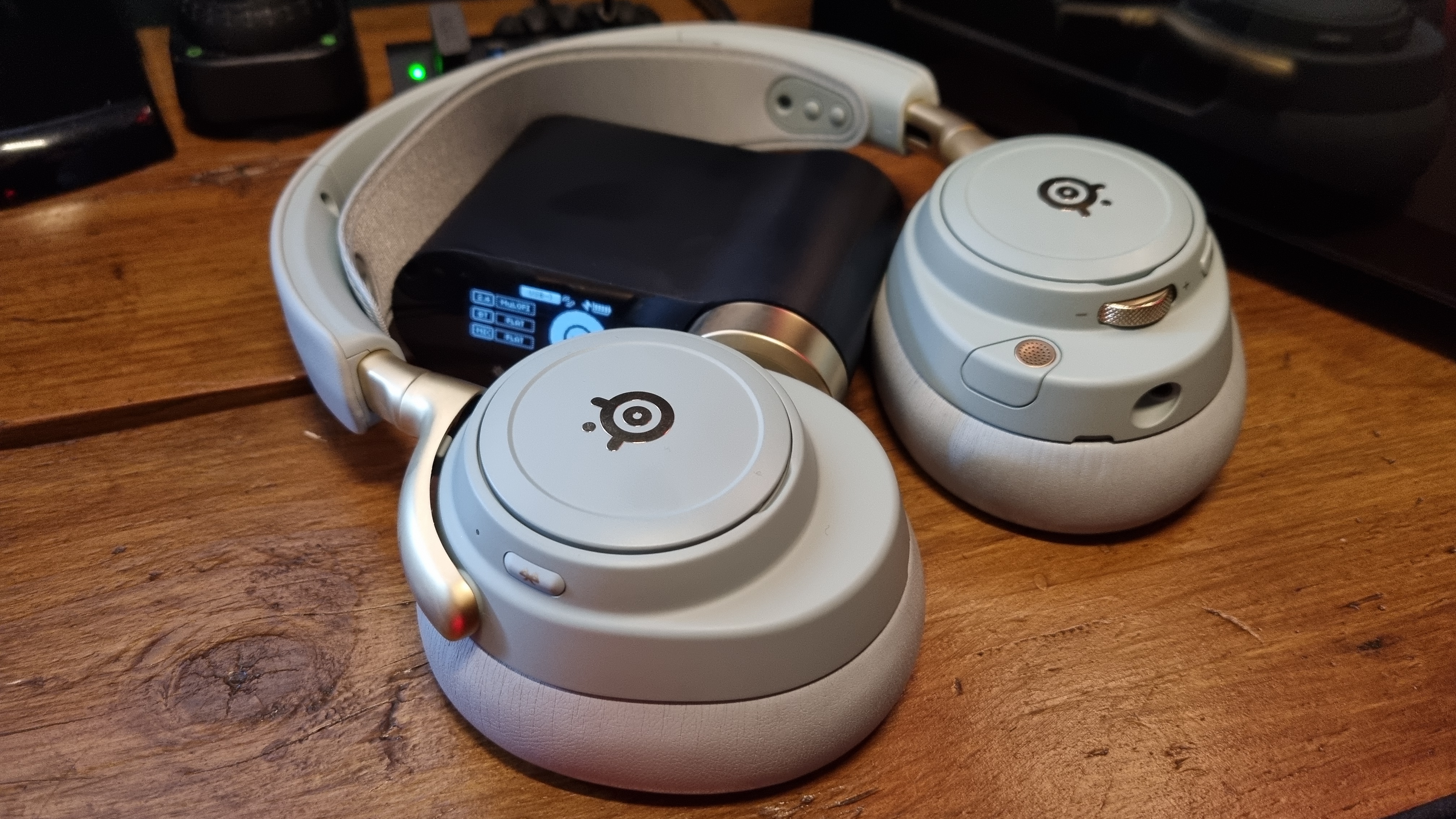'Nootropics' marketed to esports viewers aren't necessarily safe, says doctor
And they probably won't make anyone better at gaming.

Corneliu Giurgea, the 20th century Romanian chemist who coined the term "nootropics," said that "man will not wait passively for millions of years before evolution offers him a better brain." It seems the same is true about becoming a better gamer.
The term "nootropics" refers to drugs claimed to enhance human mental capabilities. Today, they're sold online as non-prescription supplements. Watch enough esports and you'll see them: cognitive enhancers, memory improvement pills, slow-release caffeine in chewable form, drinks that increase reaction time. Once mainly billed as "smart drugs" and marketed to biohackers, fitness freaks, students, and people who listen to too many podcasts, nootropics are now also being marketed heavily to gamers.
The companies are the ones designing the study, recruiting participants, and interpreting the results. That's not ethical science.
Dr. Migliore
These miraculous pills, powders, and gummies won't just help you work through the night (like modafinil, the favorite of students and writers with deadlines), the ads suggest. They'll also boost your K/D ratio. They'll make you as good at videogames as these professionals who have our logo on their t-shirts with all the angular lines.
The websites selling nootropics frequently say their claims are backed by "a scientific study" or are "clinically proven". Then you follow the asterisk to the small print at the bottom of the page to find that "these statements have not been evaluated by the Food and Drug Administration." To find out whether there actually is any evidence nootropics can make you better at videogames I asked a doctor who is also a gamer: Dr. Lindsey Migliore, better known as @GamerDoc on Twitter.
"If you look at the 'data' backing the claims these companies are making, they're largely funded by the company producing the product, with disparagingly low numbers [of participants]", says Dr. Migliore. "The companies are the ones designing the study, recruiting participants, and interpreting the results. That's not ethical science."
We don't need extra neurotransmitters
When Giurgea first used the word "nootropic," he was describing a substance he synthesized called piracetam. Though it's not approved for use by the United States Food and Drug Administration, in countries like the UK and Japan it's available, not as a cognitive enhancer, but as a prescription anticonvulsant.
Pills marketed as nootropics today may include a variety of vitamins and plant extracts that are claimed to boost neural activity and growth, or, generically, "brain health." Could these nootropics actually have medical benefits? It's possible, but according to Dr. Migliore, ingesting these compounds is unlikely to help you if your body isn't actually deficient in any of them.
Keep up to date with the most important stories and the best deals, as picked by the PC Gamer team.
"If you spend 10-15 minutes outside every day and eat a balanced diet, your vitamin D levels are most likely normal," says Dr. Migliore. "Will taking a supplement of vitamin D do anything for you? Probably not. On the other hand, if you avoid the sunlight and don't eat meat, your vitamin D levels may be low. For those people, a vitamin D supplement might lead to increased energy."
Acetylcholine is essential to proper brain functioning and memory formation. But most humans have absolutely perfect levels.
Dr. Migliore
One of the specific benefits some nootropics for gamers claim to have is increasing the brain's production of the neurotransmitter acetylcholine, which has been shown to help people with neurodegenerative conditions and memory loss due to aging. But, like the vitamin D supplement, it's not necessarily helping people who don't have a deficiency brought on by Alzheimer's or dementia.
"What nootropic companies are doing is taking a neurotransmitter that normally occurs in your body," says Dr. Migliore, "stating what that neurotransmitter does in the body, and misleading the public into thinking that's not occurring anyways. Acetylcholine is essential to proper brain functioning and memory formation. But most humans have absolutely perfect levels."
Could having more than the minimum improve brain function above normal levels? "There's absolutely no data that suggests that", says Dr. Migliore. "But, for people with low levels of acetylcholine due to some neurodegenerative condition, then there might be a benefit. That population represents less than 0.1 percent of the world, and cannot be extrapolated to the everyday gamer."
No benefit, but some risk

Health Kit is PC Gamer's coverage of health, ergonomics, and wellness, which is being produced with support from AMD.
What should I do if I have wrist pain?
How to configure your mouse so it doesn't hurt you
How to sit at a desk with good posture
5 ways to avoid hurting yourself while PC gaming
Nootropics are unlikely to deliver the cognitive improvements they claim to offer, then. But since they're just non-prescription supplements, does that mean they're harmless? Not necessarily. Because of their newness and the lack of external studies—actual peer-reviewed double-blind studies—we don't really know what side effects could emerge over the long term.
"There is a potential for almost anything," says Dr. Migliore. "Unlike medications, nootropics are not regulated by the Food and Drug Administration. There is absolutely no outside testing of their products, and supplement companies do not have to prove the nootropic does what it says it does. Untested compounds could have a multitude of consequences, especially to the younger population/developing brains."
This situation—untested substances backed by overheated marketing claims, without FDA approval or believable proof of their safety or usefulness—brings to mind past troubles with dietary supplements in the US. Dietary supplement Hydroxycut was marketed as a clinically proven way to lose weight. After being linked to claims of liver failure, breakdown of skeletal muscle, and at least one death, it was finally recalled. As the New York Times reported, studies of Hydroxycut were found to have been falsified, in one case ignoring the data of subjects who had to drop out of a study due to the severity of side effects they were experiencing.
As Dr. Migliore has pointed out, the current owners of Hydroxycut also own XP Sports, a nootropics brand whose products claim to be "purpose-built for gamers" and who Team Lazarus recently signed a two-year sponsorship deal with.
On its website, XP Sports says that its supplements are "safe to use by healthy adults when used as directed on the label" and that it manufactures them in compliance with the FDA's Current Good Manufacturing Practices. However, that doesn't mean the FDA has evaluated its claims. It hasn't.
"Esports organizations partnering with new and untested nootropic companies feels akin to Marlboro sponsoring athletics teams in the 1980s", says Dr. Migliore. "Adults are more than welcome to make their own decisions when it comes to what they put in their bodies, but the fact of the matter is that there are kids watching these competitions. Children look up to these esports athletes who now are supporting potentially harmful chemicals. They see their idols supposedly using nootropics, they are going to follow suit. Esports organizations know that, and have a moral obligation to be responsible."

Jody's first computer was a Commodore 64, so he remembers having to use a code wheel to play Pool of Radiance. A former music journalist who interviewed everyone from Giorgio Moroder to Trent Reznor, Jody also co-hosted Australia's first radio show about videogames, Zed Games. He's written for Rock Paper Shotgun, The Big Issue, GamesRadar, Zam, Glixel, Five Out of Ten Magazine, and Playboy.com, whose cheques with the bunny logo made for fun conversations at the bank. Jody's first article for PC Gamer was about the audio of Alien Isolation, published in 2015, and since then he's written about why Silent Hill belongs on PC, why Recettear: An Item Shop's Tale is the best fantasy shopkeeper tycoon game, and how weird Lost Ark can get. Jody edited PC Gamer Indie from 2017 to 2018, and he eventually lived up to his promise to play every Warhammer videogame.

